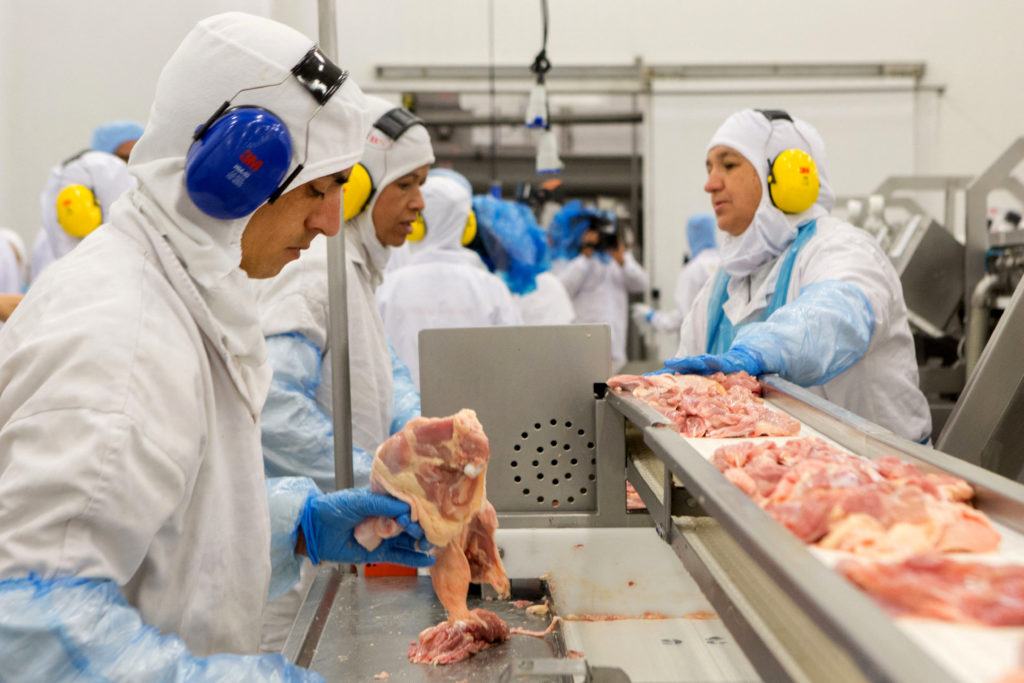São Paulo – Brazilian exports of poultry protein are expected to total 4.58 million tonnes from January to December 2021, an amount 8% higher than in 2020. For 2022, the projection is for international sales to reach 4.75 million tonnes, a volume 5% higher than estimated for this year. Data were released by the Brazilian Association of Animal Protein (ABPA) in an online press conference this Thursday (16).
From January to November this year, 4.199 million tonnes were exported, a 9.1% increase over the same months in 2020. Revenue reached USD 6.945 billion, a 25.3% growth in the same comparison. During this period, the leading destinations for Brazilian poultry were China and Japan, followed by the United Arab Emirates, which surpassed Saudi Arabia, now in the fourth position. The eighth main destination was Yemen, with a 4.8% expansion in volume (104,630 tonnes).
After the press conference, Luis Rua, ABPA’s Markets director, spoke to ANBA. “As for Saudi Arabia, the 20% reduction in the year to date is related to the suspension of 11 plants as of May. The Brazilian government is working to bring the situation back to normal, as Saudi Arabia is experiencing very high domestic prices due to the short supply of products. I hope the two governments can reach an agreement so we can return to previous levels and contribute to the country’s food security,” he said.
Regarding the growth in exports to the UAE, Rua stated the main factors were the return of economic activity and the country being a hub in the region, mainly to Asian countries, which boosted the shipped volumes. “The UAE have always been a partner purchasing very high volumes. I don’t see a reduction for next year, perhaps conservation on volume,” he said.
In general, Rua said Brazil has been maintaining stability in poultry shipments to the Middle East and Arab countries. “It is an already established market, which has volumes already known, and we expect an increase for the region, as well as for some countries in Asia,” he stated.
Arab countries currently represent 33% of total Brazilian poultry exports. Rua estimates this market share could be maintained or possibly even increased. “We can reach 35%,” he declared. Asia has 40% of the Brazilian poultry market, China alone with 15% of exports.
Rua also highlighted the performance of Yemen, the eighth largest buyer, with a growth of 5%. “Yemen buys poultry a little bigger than sold to Saudi Arabia, for example. For the Saudis, they have an average weight of 900 grams to one kilogram, while the ones sold to Yemen have around 1.5 kilograms,” he said. According to Rua, Oman also grew around 17%, Qatar, 3%, and Jordan, 23% in the year.
“Our trade with the Arab countries continues to take place with great regularity and trust between the parties, as many Brazilian companies have recognized brands in the region. Some even have their own distribution centers in Oman, Qatar, Saudi Arabia, and the UAE. It is a consolidated market for us, and we continue to serve with maximum quality, safety, and health,” he said.
Global outlook
At the press conference, the president of ABPA, Ricardo Santin, stated several markets should influence the positive behavior of Brazilian poultry exports. He said the global health situation, with the impacts of Avian Influenza outbreaks on the worldwide flow of exports, should favor the Brazilian position as a world leader.
The outlook for poultry and eggs exports to the Arabs for next year is positive, said Rua. “Many countries still face Avian Influenza, and Brazil has never registered any cases in its territory, it continues as a solid and stable partner for the region. We will also take 20 poultry and egg companies to Gulfood in February next year. We hope to strengthen ties with this region further,” he concluded. Gulfood is the largest food show in the Middle East; its next edition will take place in February 2022 in Dubai.
Translated by Elúsio Brasileiro




